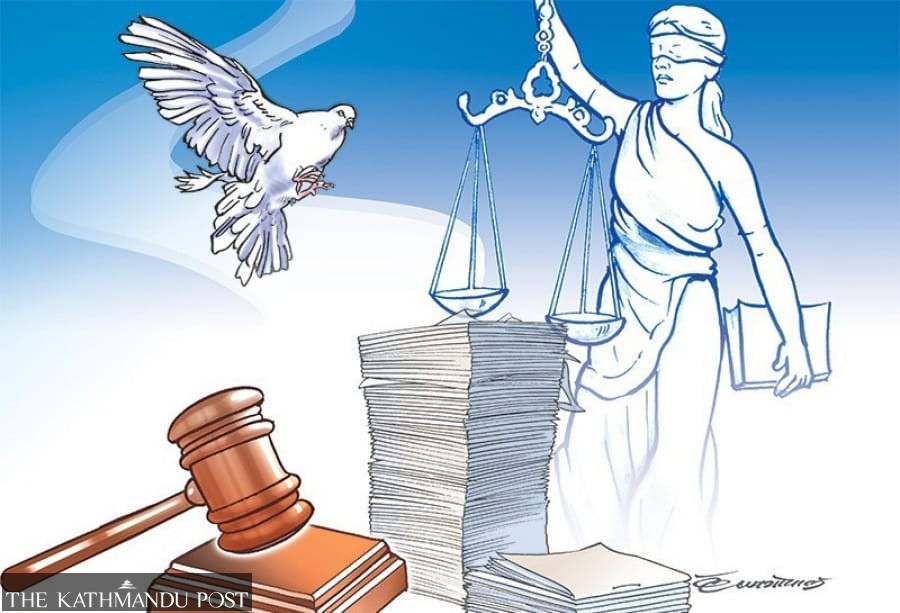Editorial
Justice, disappeared
Solving insurgency-era cases is not just a national urgency but also a global human rights responsibility.
Seventeen years after the Maoists ditched guerrilla life for parliamentary politics, in what was touted to be an exemplary management of an armed insurgency, justice for the victims of human rights violations and enforced disappearances remains elusive. One precondition of the peace process that began with integrating the Maoists into parliamentary politics was the formation of commissions to find truth about the unsolved insurgency-era cases. It was a tripartite concern: Thousands of guerrillas, security personnel and civilians had been killed, maimed or disappeared inhumanely. Until the perpetrators of such dastardly acts had been made to answer, repent or pay for their actions, the peace process would remain fractured.
The promise of the truth commissions was fulfilled, though belatedly, in 2015, with the institution of the Truth and Reconciliation Commission (TRC) and the Commission for the Investigation of Enforced Disappeared Persons (CIEDP). In the intervening years, the commissions got several commissioners and extensions, and they sold promises of providing answers to the victims and their families. But all that the commissions did was take complaints. What they have failed to do is to ensure justice. With over 64,000 complaints of gross violation of human rights and over 2,500 cases of enforced disappearance pending in the TRC and the CIEDP, respectively, what we have today is no more than a paraphernalia of peace.
The twin commissions have recently got yet another extension, until January 14 next year, to complete the process. With just four months of their term remaining, what they will accomplish is more or less a foregone conclusion—almost nothing. At the country’s helm are the two former enemy parties—the Maoists and the Nepali Congress—both of which have skeletons in their closets. The fact that the lowly commerce of power sharing has made them bedfellows precludes any prospect of them giving the justice process a dignified conclusion. Nowhere was this more evident than in their attempt to pass murder off a “not so serious” act eligible for amnesty when their governments presented bills to amend the Enforced Disappearances Enquiry, Truth and Reconciliation Act, not once but twice.
In the absence of a credible transitional justice process, the Supreme Court has had to time and again step in and pass orders on the prosecution of serious crimes. Expectedly, the Maoists have made a hue and cry about such "judicial activism". However, the Maoist leadership has shown little interest in solving the issue, except when it advocates for blanket amnesty in the name of “forgive and forget”. And with the most prominent actors of the insurgency failing to take onus for concluding the peace process, other stakeholders, such as security agencies and political leaders of the time who implicitly or explicitly ordered the disappearances and killings, see no reason to offer an answer either.
The latest bill presented by the government to amend the TRC Act is still under consideration—with several missed deadlines and waiting for yet another extension—in the Parliamentary Subcommittee on Law, Justice and Human Rights. Civil society should come together to support the victims and their families as they seek justice. And as the world commemorates the International Day of the Disappeared, it is vital to remember that no matter how much Nepal boasts of having completed a peace process, Nepali citizens, who are somebody’s loved ones, are still missing. As years pass by, the hopes of their return slowly give way to despair, exposing the fractured peace we have attained. The whereabouts of over 2,500 persons cannot remain a mystery, and the wounds of the insurgency cannot be healed by obfuscation. The country owes the victims a definite answer.




 9.89°C Kathmandu
9.89°C Kathmandu














